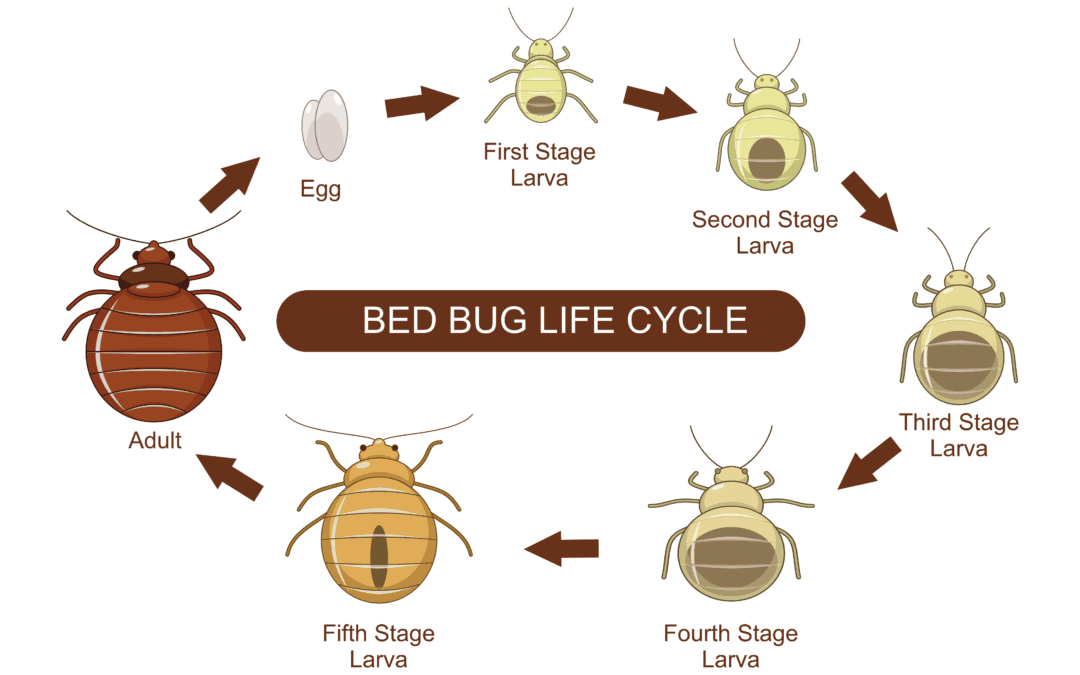Bed Bug Infestation vs. Introduction
Bed Bug infestations don’t happen overnight. But, bed bug introductions do. If a pregnant female bed bug has been “introduced” into one of your units it will take 2 to 3 months to become a light infestation. This is where a proactive canine assisted search program can help immensely. It is best to find and treat a bed bug problem as early as possible. With monthly, bi-monthly, or quarterly inspections, a dog will find introductions before they become infestations. This will help keep your costs of treatment down. In the case of an assisted living facility, your hard earned reputation will not be damaged by the elderly getting bitten by bed bugs.
In a multi-family unit, it is possible that tenants will not report an infestation and they will try to take care of it themselves. Maybe they think they will have to pay for the treatments, or maybe they have people living with them that are not on the lease. Whatever their reasoning, introductions and infestations need to be identified before spreading to other units and increasing your exposure to liability. A good plan and quarterly mandatory inspections of each unit will drastically reduce infestation occurrences, keep your treatment costs down, and help reduce your liability in a litigation situation.
Bed Bugs Are Shy
Bed bugs like to stay hidden in areas that do not have a lot of movement. Box springs are a favorite hiding spot. They are even more popular than the mattress, since it doesn’t move around much and is still close to their food source. A bed bug can feed every 5 to 7 days, but can go as long as 3 to 5 months without a blood meal. They have to feed at least 5 times to reach full maturity. Bed bugs will come out at night while people sleep and feed for as long as 10 minutes. They will then return to their hiding spot until it is time to feed again.
Do not ignore the early signs of bed bugs. (bites, fecal and blood stains, or skin castings)
Stop The Infestation As Early As You Can
-
Hire a Professional – Bed bugs are one of the most difficult pests to get rid of. Most of the bed bug “kits” you can get at a hardware store just plain don’t work.
-
Have our canine detection team check the units above, below, and beside the infested unit. We need to verify that the bugs have not traveled to adjacent units and are causing even more issues. (This should occur with every bed bug complaint)
-
Free Training – Let us train your staff on what to look for and how to inspect for bed bugs. The more eyes you have working for you on a daily basis the better.
-
Consider mattress and box spring encasements. These will not allow any living bed bugs to escape and will keep new bed bugs from setting up house.
-
Consider climb up traps to monitor for bed bugs.
Bed Bugs are Here to Stay
Bed bugs are nasty little parasites. But, there should not be any more stigma attached to them than we give to ants, flies, or mosquitoes. Bed bugs do not care if you are clean or dirty; rich or poor. They just like to hitchhike and feed on human blood. Try to be open with yourself and others when it comes to bed bugs. Do not shame or assign blame to your tenants if they get bed bugs. You want them to be open with you and let you know if they have a bed bug problem. If the tenants don’t feel comfortable coming to you, it will cost you more money and more headaches at the end of the day.
The moral to this blog is….
-
Be open with your tenants about bed bugs and encourage your tenants to be open with you.
-
Have a proactive bed bug inspection program in place that minimizes the chance of an introduction becoming an infestation.
-
Always search the units adjacent to the bed bug affected unit.
We also check units when tenants leave and before new tenants move in to verify that they are starting with a clean slate.
Call Now!!
